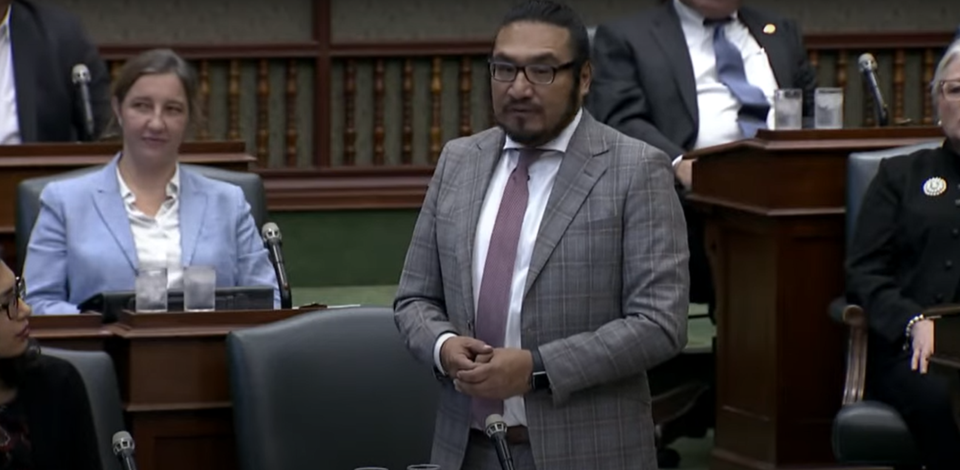NDP deputy leader Sol Mamakwa says provincial legislation that would have seniors moved from hospitals and placed in long-term care facilities up to hundreds of kilometres from their homes is a form of continued colonization, and will potentially re-traumatize residential school survivors.
Mamakwa, the MPP for the Kiiewetinoong riding, spoke in Question Period at Queen's Park last week about the Progressive Conservative government's Bill 7, More Beds, Better Care Act, and the effects it will have on Indigenous elders.
Bill 7, which the government has said is meant to alleviate pressure on hospitals, allows medical personnel to move people from their home community and re-institutionalize them in a long-term care home not necessarily of their choosing.
Mamakwa began his question to Premier Doug Ford by telling him about the Sept. 30 council meeting in Sioux Lookout, where the council unanimously passed a resolution to support the suspension of the legislation within Sioux Lookout's municipal boundaries.
“This was done because the reality of this bill doesn’t work for the people served by the health care system in the Sioux Lookout area,” Mamakwa said.
"Will this government intake the meaningful consultation on this bill with health care providers in Sioux Lookout?”
Long-Term Care Minsister Paul Calandra responded to Mamakwa’s question by saying that “Bill 7 helps ensure better care for people closer to home.”
However, in Northwestern Ontario, the vast geographical distance between communities would be more of a punishment to residential school survivors than better care, Mamakwa countered.
“Bill 7 is colonial,” Mamakwa said. “I ask this government to stop your colonizing ways. Because last week I attended a gathering of Indian Residential School Survivors from the north and they shared they’re worries about Bill 7.”
Mamakwa then referenced words he has heard from many Indigenous community in the north, that forcing Elders away from their home communities is traumatizing to residential school survivors.
“Survivors will again be moved forcefully because of the lack of long-term care facilities in our communities,” Mamakwa said. “They do not want to be forced to leave, to spend their last years far away from home.”
"When will this government finally get around to honouring this request from Kiiwetinoong?
Robin Martin, the parliamentary assistant to the minister of heath, said the province remains committed to working with their Indigenous partners.
Martin referred to the Kenora and Rainy River Ontario Health Team as one of those collaborations with Indigenous Partnerships. Additionally, Kiiwetingoong Health Waters was also added to the list of Ontario Health Teams.
The Sioux Lookout area serves as a hub for as many as 30 remote First Nations communities, which has often led to pressure on the local health care system and a shortage of long-term care beds.
